Spotlight: Mike Block
Mike Block is a pioneering cello player, singer, composer, and educator, hailed by Yo- Yo Ma as the "ideal musician of the 21st-Century". Passionate about cross-cultural collaboration through music, Mike is committed to inspiring individuals and connecting communities.
As an innovator, Mike is among the first wave of cellists to adopt a strap in order to stand and move while playing. With The Block Strap, Mike was the first standing cellist to perform at Carnegie Hall. The NY Times characterized the performance as, "Breathless ... Half dance, half dare." As an educator, Mike is passionate about creativity and collaboration, and is the founding director of Silkroad’s Global Musician Workshop, and the Mike Block String Camp.
How did you decide to become a musician? What drew you to your instrument?
I grew up in a family of Western Classical musicians, so I began playing Suzuki Violin very young. When I was 9, the other kids in my school started playing instruments as well, and the other short kid in my class chose the cello, so I thought maybe I'd like to sit by him by switching instruments. :) Also, I was fascinated by the low c-string of the cello – to think that I could make a sound that low was pretty amazing to me, at the time.
When did you first work with Silkroad? And if you remember, what was the project?
I met Silkroad in 2004 as a participant in their Professional Training Workshop through Carnegie Hall. It was a life-changing week spent at Tanglewood, playing music and hanging out with the ensemble and with Yo-Yo Ma. It was a year later that I was first asked to join the ensemble on a tour to Japan for the World Expo.
What is one of your favorite memories while working with Silkroad?
That is a difficult question ... too many!! :)
What makes you excited or inspires you as an artist and what kind of projects do you love working on?
My favorite thing to do is collaborate with musicians from other cultures/styles. Without prescribed "roles" to fill, cross-genre music often becomes even more personal for me. Collaborators have no choice but to invest all of ourselves into the music in order to find common ground. The result is utterly dependent on the specific individuals on stage, and you can't swap one musician out for a substitute without changing the overall experience/conversation.
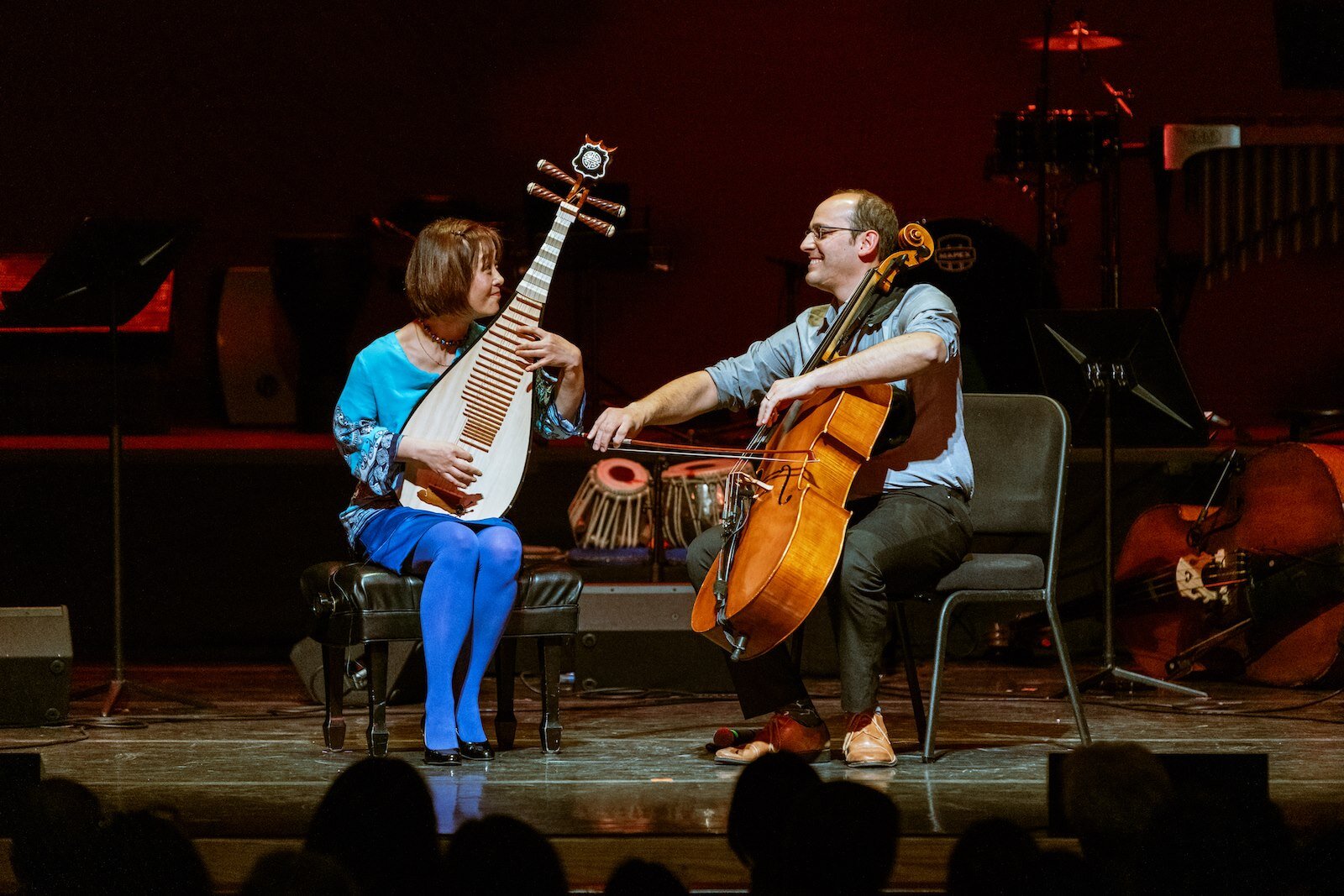
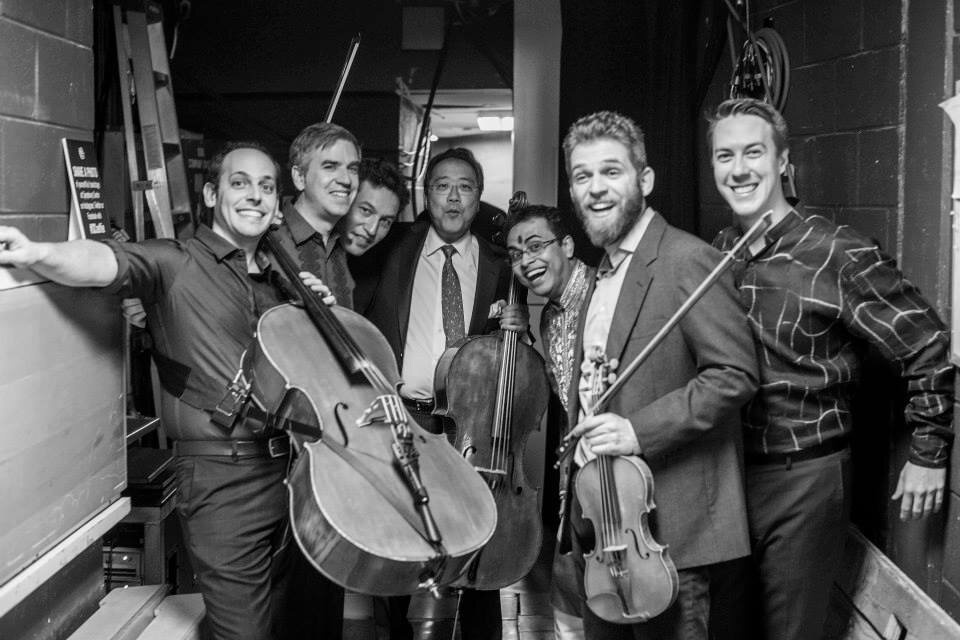
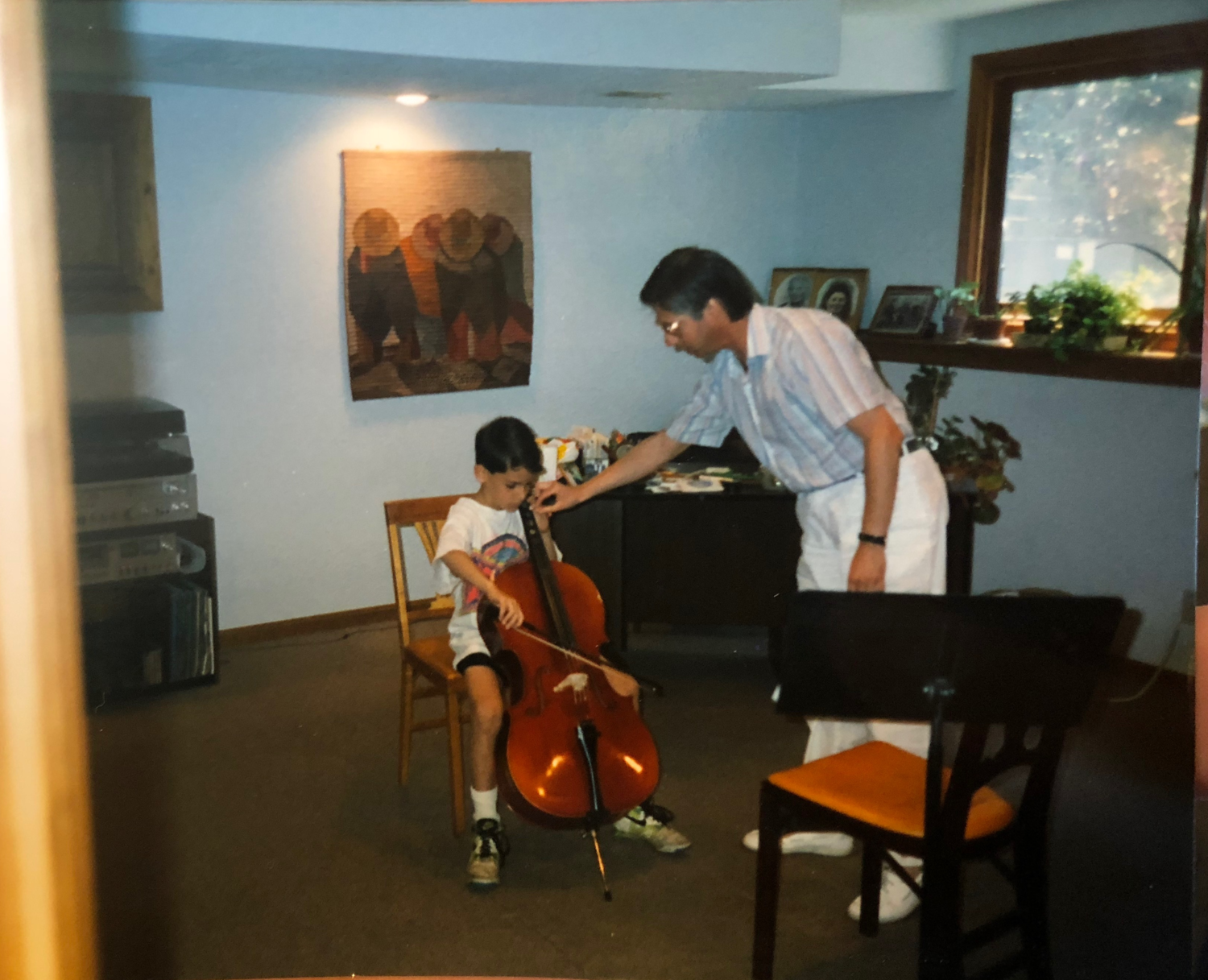
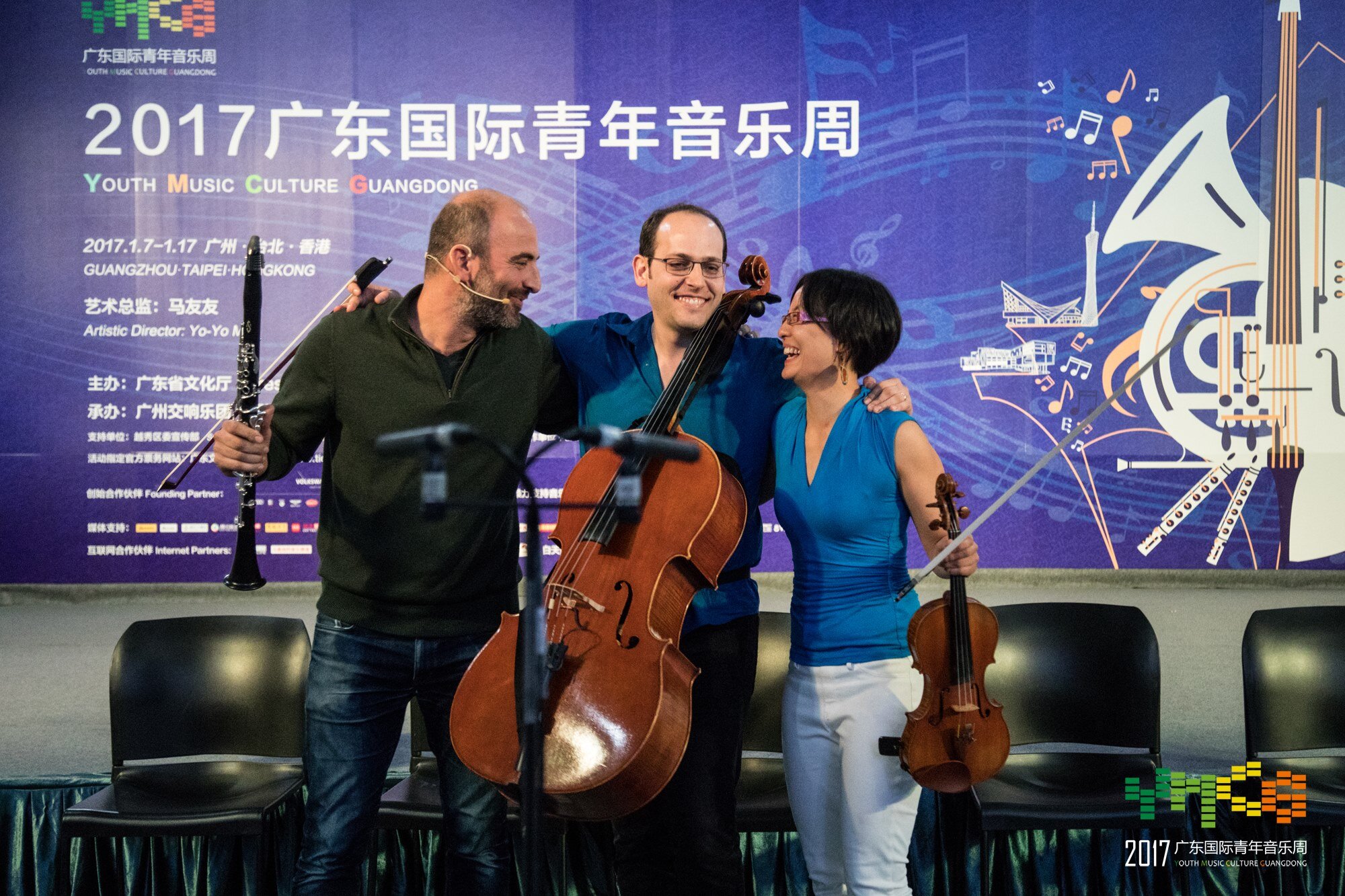
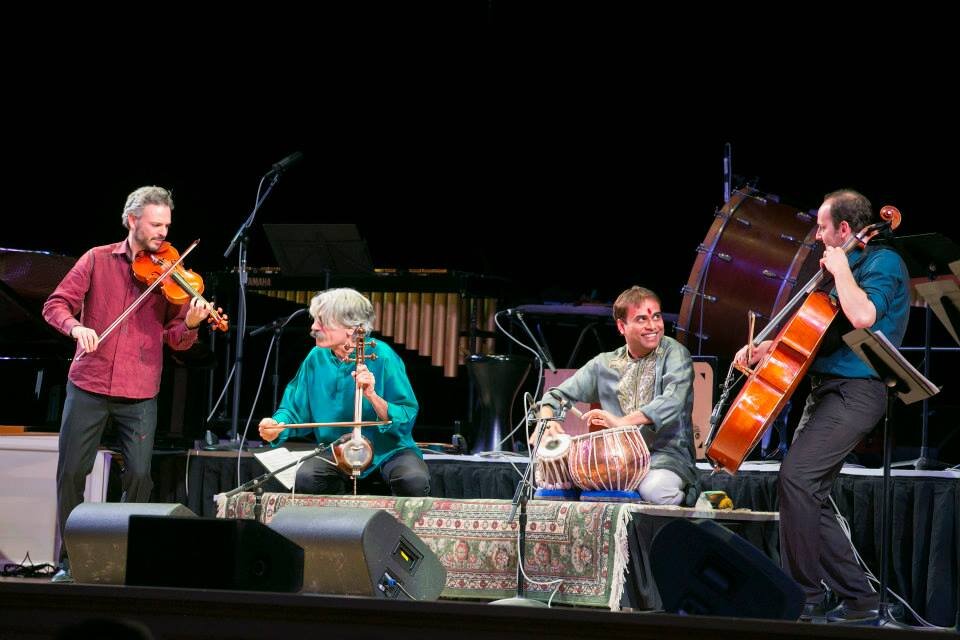
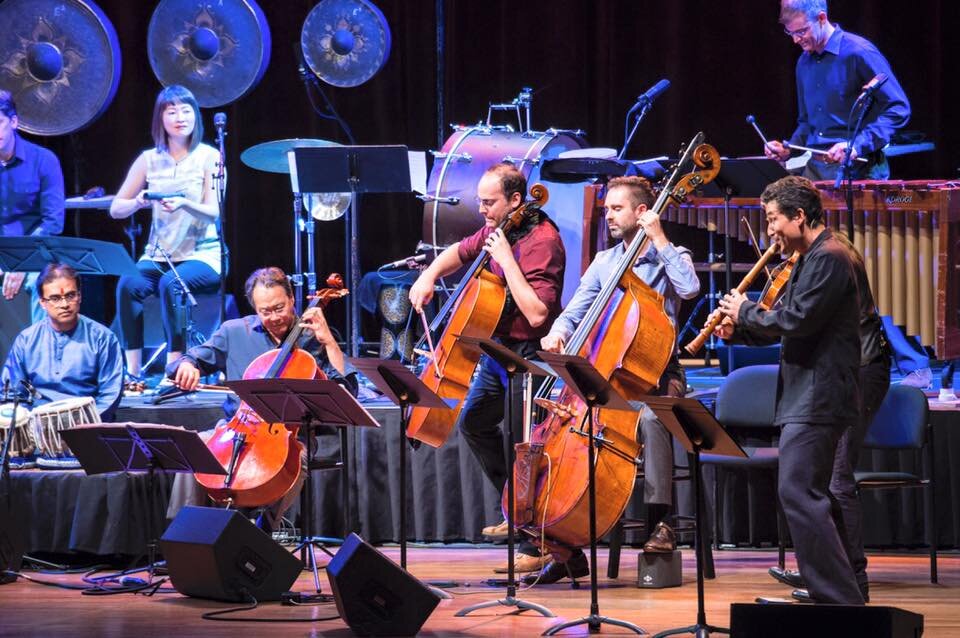
How has the pandemic affected you as an artist?
I've tried to take this opportunity to work on some things I've been wishing I could spend more time on for a while, but regular touring often gets in the way. I've enjoyed taking lots of private lessons from other musicians I respect, working on improvisation in Jazz, Arabic, and Indian styles, as well as some lessons with African musicians, and vocal lessons.
What kind of projects have you been working on and what can we expect in the coming months or year?
I have a duo with the Indian tabla player Sandeep Das (we met in Silkroad Ensemble!), and we just released our debut album, "Where the Soul Never Dies". Over the summer I'll be directing two music camps: Silkroad's Global Musician Workshop (August 8-14) and the Mike Block String Camp (July 5-10).
What are you listening to these days?
While completing this interview, I just finished listening to an album by the Persian folk supergroup, Rastak, and now "Valleys (My Love)", by Whitney, is playing. :)
What advice would you give to a young musician who has now read through all of these questions?
I don't have any blanket advice that would apply to all young musicians... but maybe I can offer a Zen riddle to ponder: "Music is a tool. What do you want to build?"
